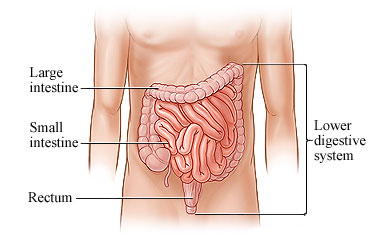Overview
A Meckel's diverticulum is a small pouch on the wall of the small intestine. It is a part of the fetal digestive system. Most often it's absorbed by your body before you are born.
But some people still have this small pouch as they grow older. Very few people ever have symptoms or problems because of it. If you have this pouch but you have no symptoms, your doctor will watch for any problems. If it starts to cause symptoms, such as belly pain or blood in your stools, you may need surgery.
Follow-up care is a key part of your treatment and safety. Be sure to make and go to all appointments, and call your doctor if you are having problems. It's also a good idea to know your test results and keep a list of the medicines you take.


